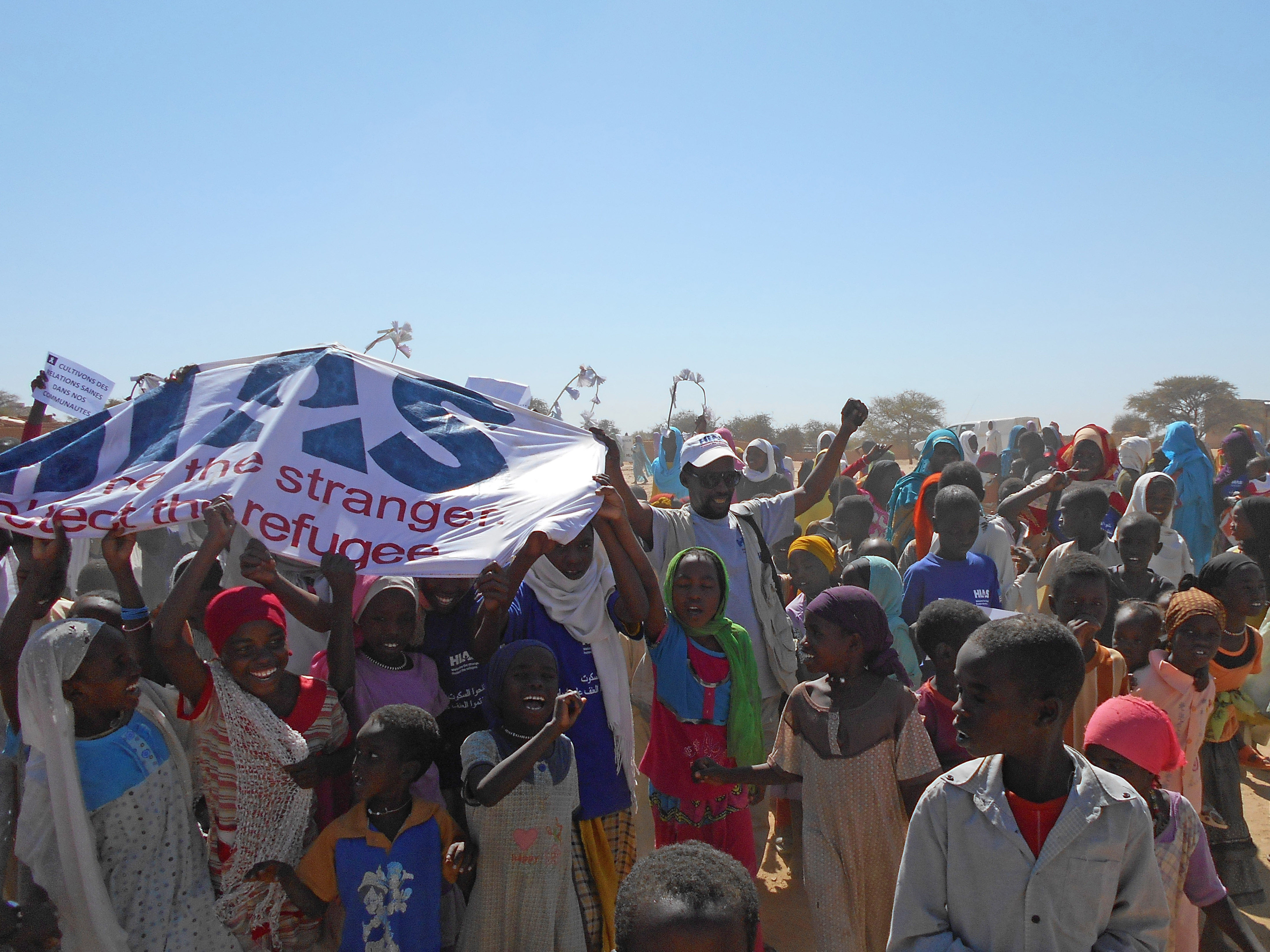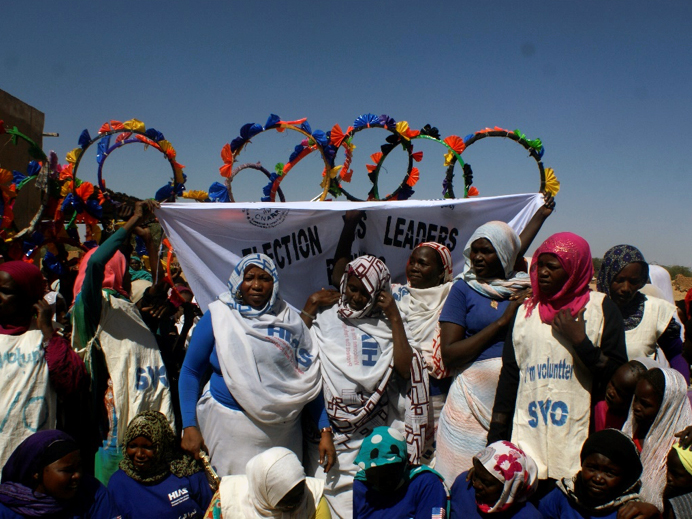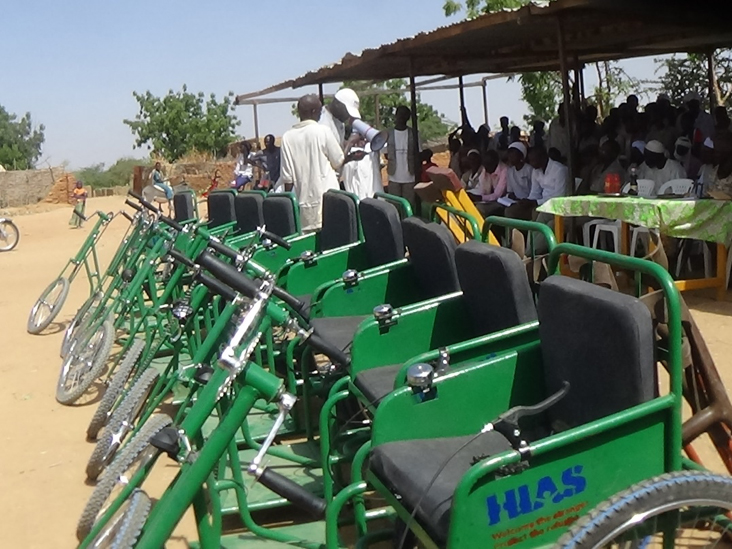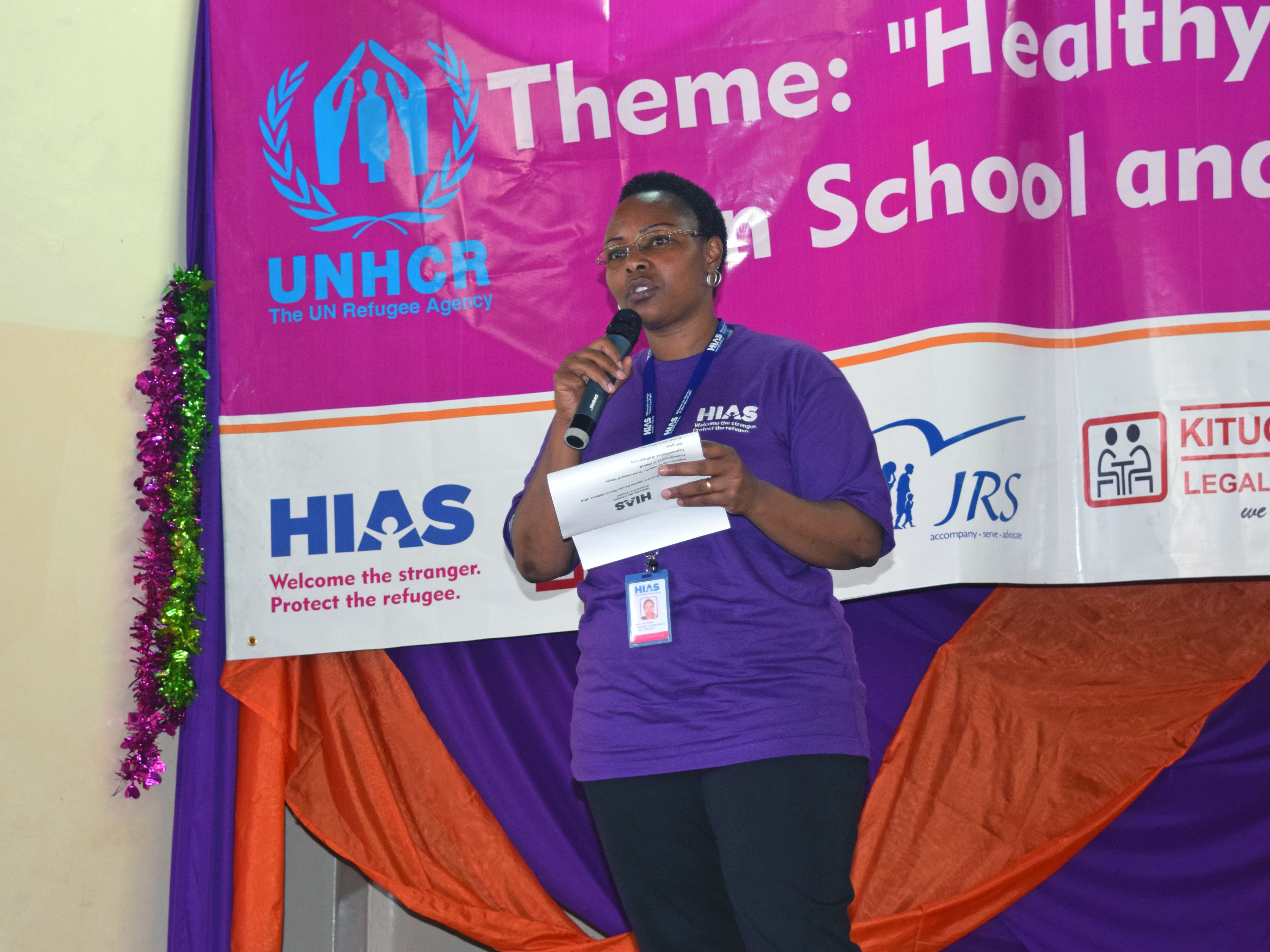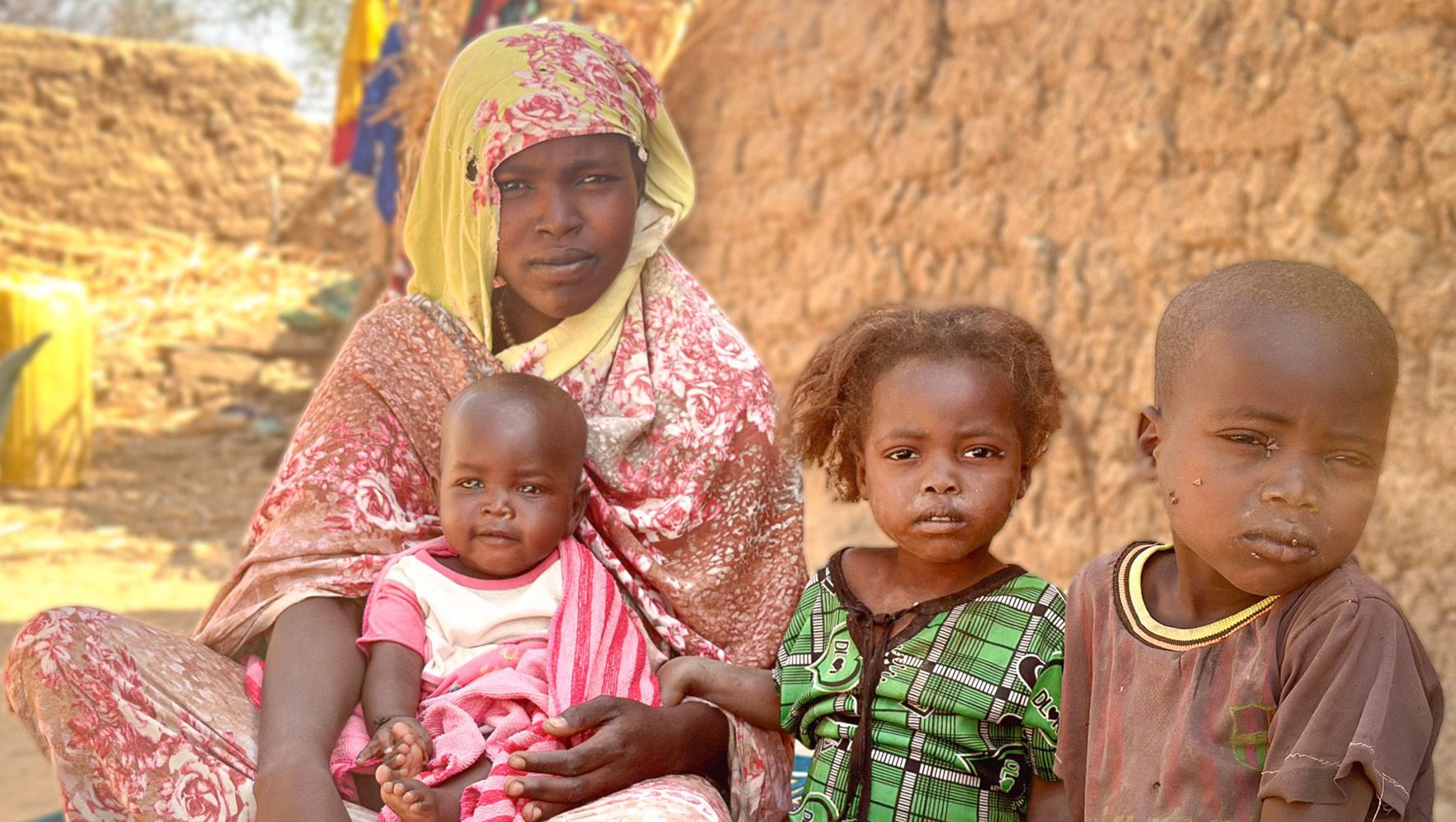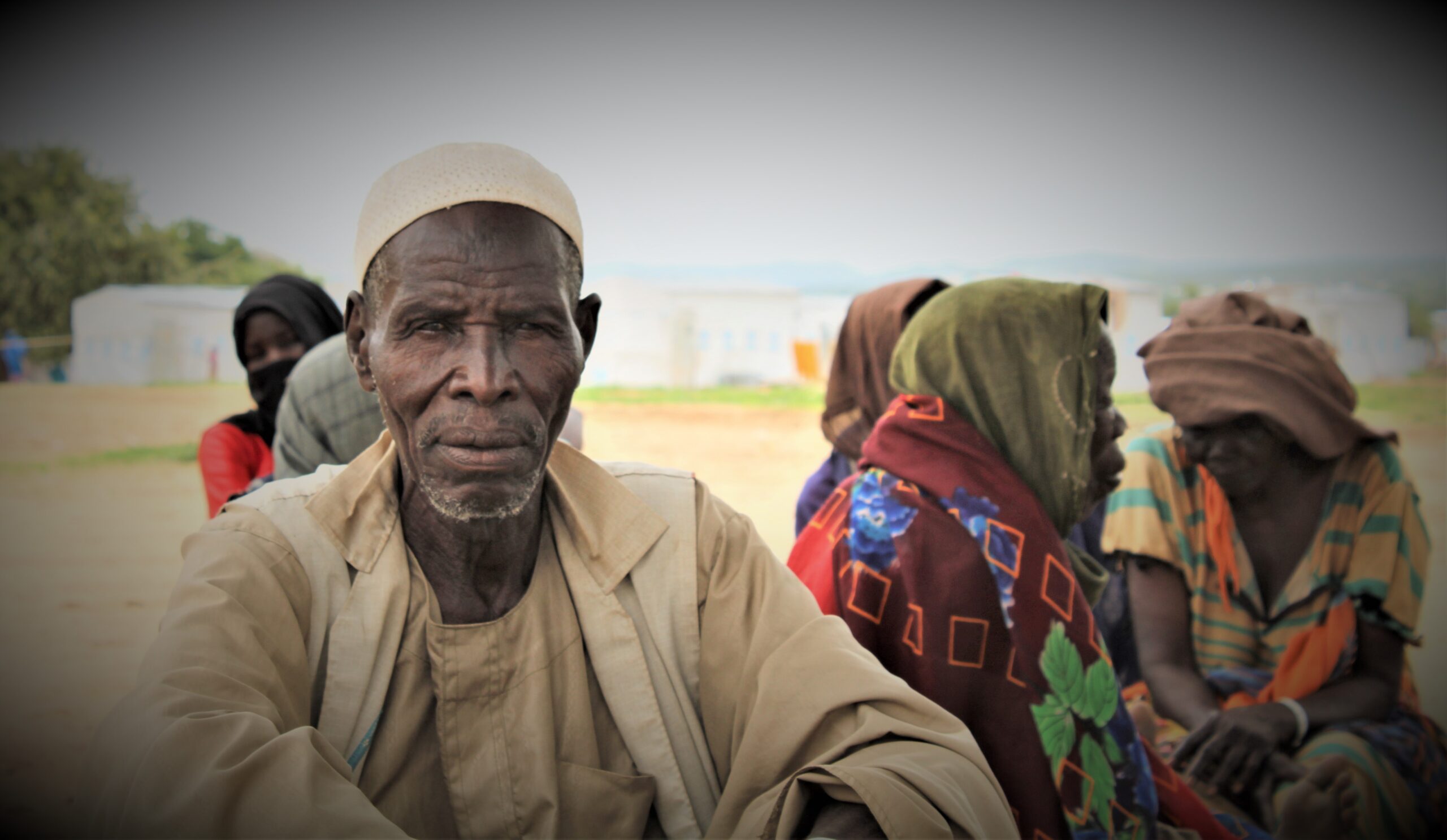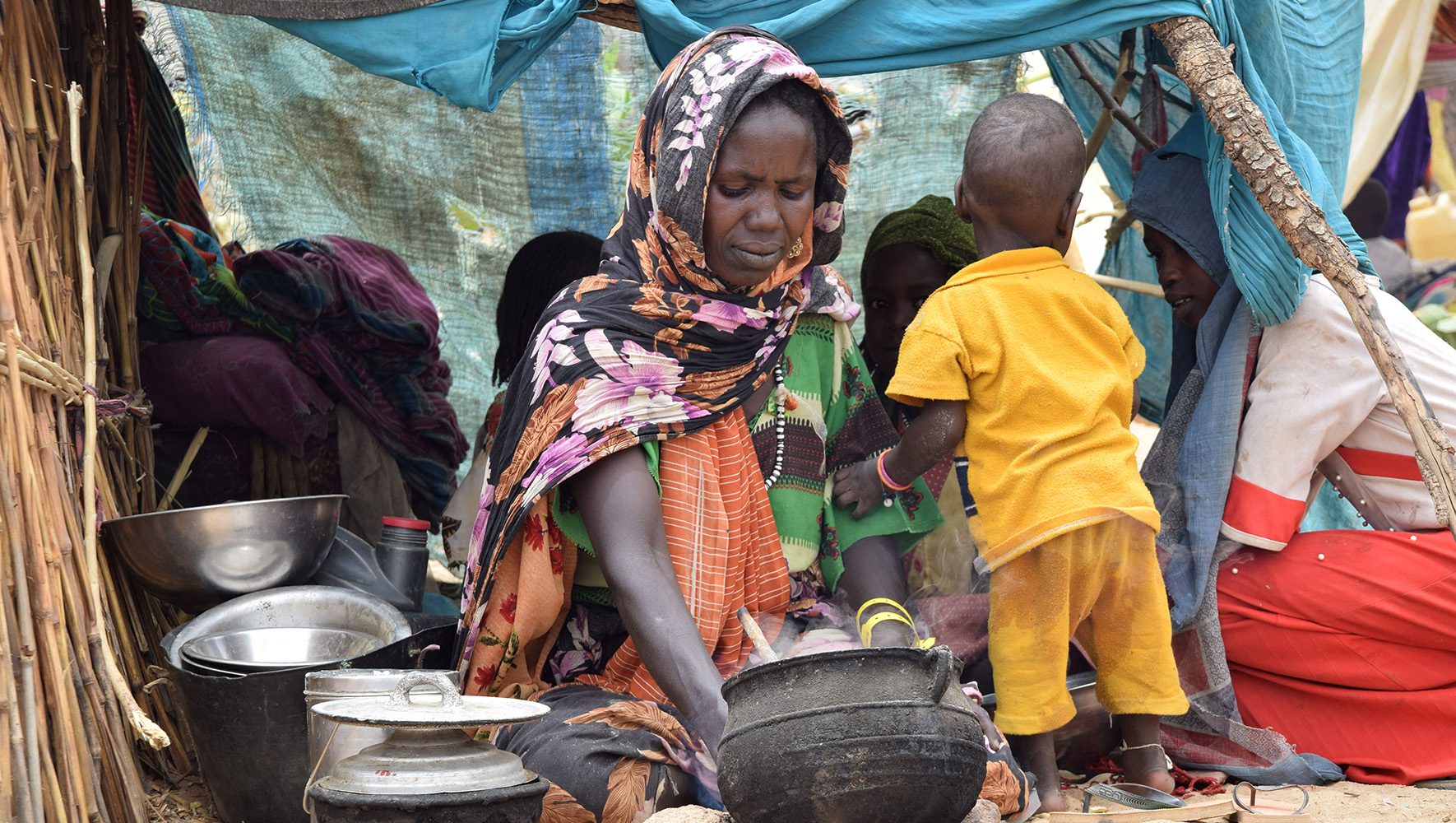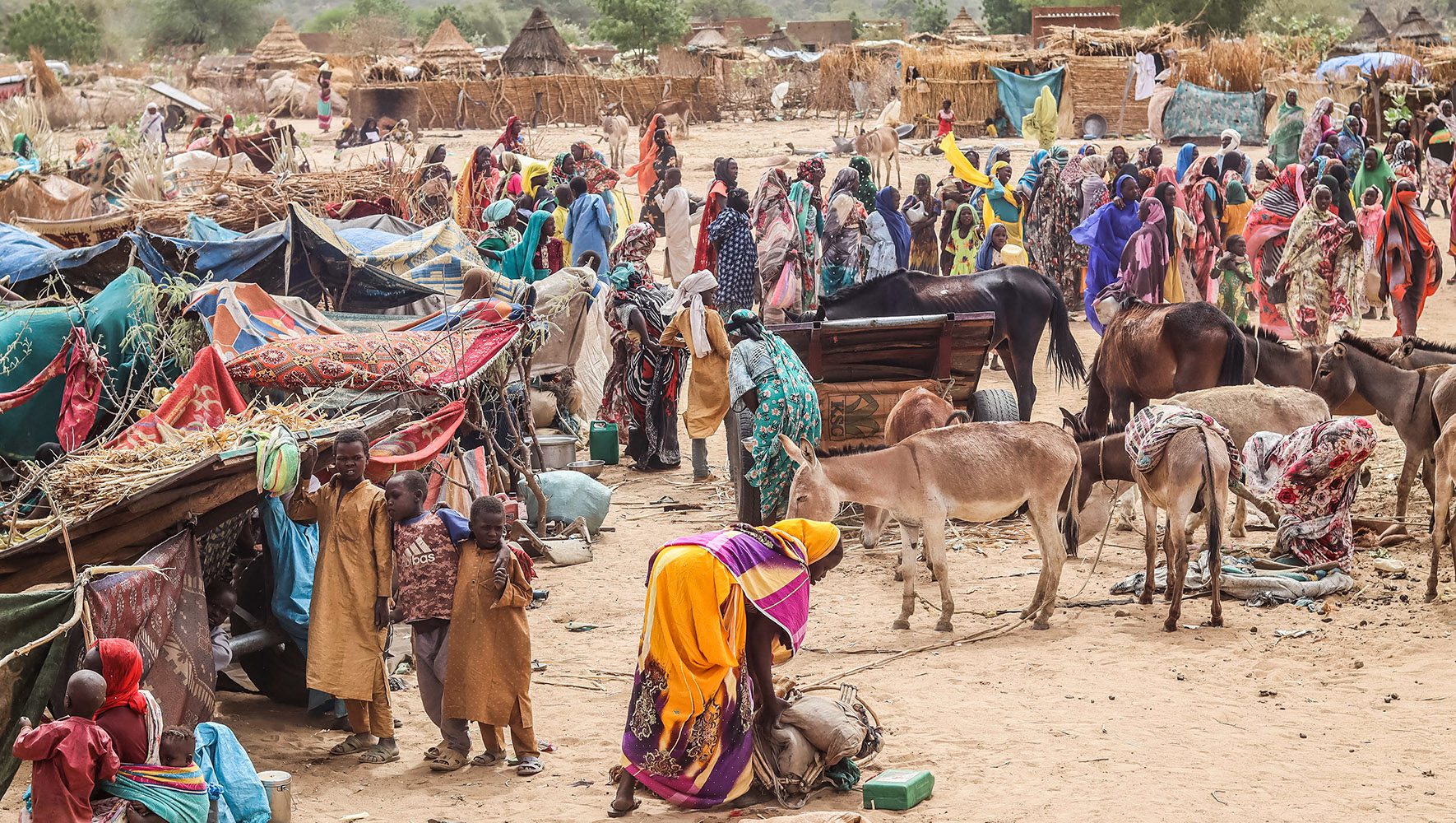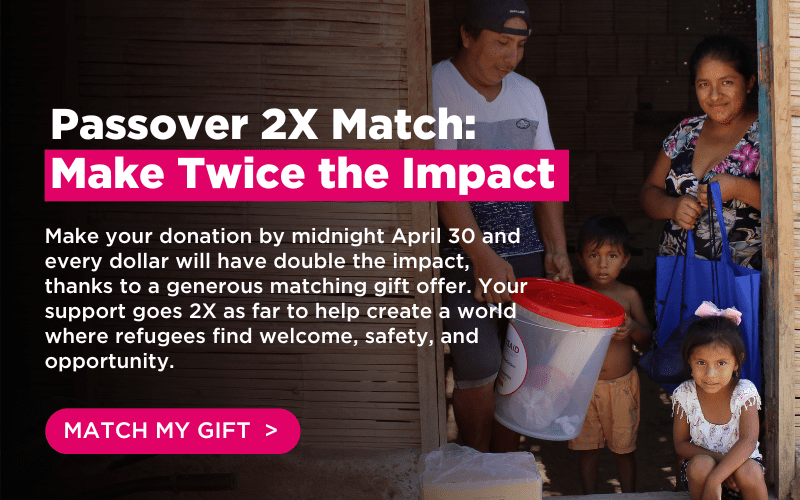16 Days of Activism: Standing Up to Violence Against Women
By Rachel Nusbaum, HIAS.org
Dec 20, 2016
Ending gender-based violence is a vital human rights imperative. Unfortunately, the circumstances of flight and dislocation can make refugee women and girls especially vulnerable.
In recognition of this reality, several HIAS offices held events to commemorate an important international effort: 16 Days of Activism Against Violence Against Women. The annual campaign, launched in 1991, is observed from November 25 to December 10.
This year, the 16 days were celebrated in many ways, big and small, from the refugee camps in Chad to major urban centers like Nairobi, Kenya and Kampala, Uganda.
One kickoff event, in the Djabal camp in eastern Chad, featured speeches about the importance of women’s rights and opposing violence against women and a parade. Marchers held up signs with anti-violence slogans. “Put a stop to gender based violence,” said one. “Parents, protect your children,” read another.
“During displacement, women and girls often have no safety net; they usually flee with few resources and may become separated from or lose family members,” said Jina Krause-Vilmar, director of livelihoods and workforce development at HIAS. “Too often, gender-based violence becomes part of their everyday lived realities.”
In the Mile refugee camp, also in eastern Chad, HIAS community mobilizers addressed the crowd, asking the community to “say no” to violence against women, include them in decision making, and distribute opportunities equally. Community mobilizers are members of the refugee community who work with HIAS, providing support, outreach and insight into the needs of the communities HIAS Chad serves.
“We organized a number of activities across the camps in order to join the refugees and other communities in celebrating the 16 Days of Activism,” said Joyce Kanja, director of HIAS Chad. “Hopefully, these events helped raise awareness about the violence faced by women and girls.”
HIAS staff also made use of the occasion to distribute wheelchairs and crutches to 32 refugee clients who are living with disabilities, including ten female refugees. Providing these refugees with mobility aids increases their independence and ability to move freely in the camps, empowering them and decreasing their vulnerability to sexual and gender-based violence.
In Uganda, they marked the start of the 16 Days of Activism with the launch of a national policy on the elimination of gender based violence. HIAS Uganda staff attended the launch, at the Imperial Royale Hotel Kampala, on November 25, 2016.
Several male staff members at HIAS Uganda took part in another awareness campaign as part of the 16 days, opting to walk in women’s shoes for a day—literally. They joined a public march in the streets of Kampala, boldly decked out in high heels, purses and women’s wraps in order to make a very public statement about the need to end violence against women. The display of solidarity was greatly enjoyed and appreciated by onlookers.
The men’s willingness to trade perspectives, and footwear, for a day in order to increase awareness of this important issue even made the news. You can watch the report that aired on NTV10 in Uganda by clicking play above.
In Kenya, HIAS organized a celebration for the 16 days with support from partners who also serve urban refugees in Nairobi. More than 200 refugees attended the event, which featured skits and a dance performance highlighting the harms caused by gender-based violence, as well as ways the community can prevent and respond to it.
HIAS Kenya Director Lucy Kiama noted the significance of the timing of the 16 days, which “begin on the International Day Against Violence Against Women and conclude on International Human Rights Day.”
“The dates symbolically link violence against women and human rights and to emphasize that such violence is a violation of human rights,” Kiama said.
For many advocates, the message of this campaign goes beyond just raising awareness. Ultimately, the 16 Days of Activism are about making sure that women and girls have the opportunity to succeed, and that their rights are respected.
“Women and girls are powerful. They have a voice and, given the opportunity, they can craft their own solutions to problems facing them and their communities. But first, violence and harm against women and girls needs to stop,” Krause-Vilmar said.
Click here to read more about HIAS’ work with women and girls around the world.


